- Home
- Brandon Sanderson
Words of Radiance Page 13
Words of Radiance Read online
Page 13
“I thought so,” Yalb said, though she’d given him nothing in the way of an answer. He raised an affable hand to her, then jogged off.
She worried about letting them see Pattern. She’d tried staying in her cabin to keep him a secret from the men, but being cooped up had been too difficult for her, and he didn’t respond to her suggestions that he stay out of their sight. So, during the last four days, she’d been forced to let them see what she was doing as she studied him.
They were understandably discomforted by him, but didn’t say much. Today, they were getting the ship ready to sail all night. Thoughts of the open sea at night unsettled her, but that was the cost of sailing this far from civilization. Two days back, they’d even been forced to weather a storm in a cove along the coast. Jasnah and Shallan had gone ashore to stay in a fortress maintained for the purpose—paying a steep cost to get in—while the sailors had stayed on board.
That cove, though not a true port, had at least had a stormwall to help shelter the ship. Next highstorm, they wouldn’t even have that. They’d find a cove and try to ride out the winds, though Tozbek said he’d send Shallan and Jasnah ashore to seek shelter in a cavern.
She turned back to Pattern, who had shifted into his hovering form. He looked something like the pattern of splintered light thrown on the wall by a crystal chandelier—except he was made of something black instead of light, and he was three-dimensional. So . . . Maybe not much like that at all.
“Lies,” Pattern said. “Lies from the Yalb.”
“Yes,” Shallan said with a sigh. “Yalb is far too skilled at persuasion for his own good, sometimes.”
Pattern hummed softly. He seemed pleased.
“You like lies?” Shallan asked.
“Good lies,” Pattern said. “That lie. Good lie.”
“What makes a lie good?” Shallan asked, taking careful notes, recording Pattern’s exact words.
“True lies.”
“Pattern, those two are opposites.”
“Hmmmm . . . Light makes shadow. Truth makes lies. Hmmmm.”
Liespren, Jasnah called them, Shallan wrote. A moniker they don’t like, apparently. When I Soulcast for the first time, a voice demanded a truth from me. I still don’t know what that means, and Jasnah has not been forthcoming. She doesn’t seem to know what to make of my experience either. I do not think that voice belonged to Pattern, but I cannot say, as he seems to have forgotten much about himself.
She returned to making a few sketches of Pattern both in his floating and flattened forms. Drawing let her mind relax. By the time she was done, there were several half-remembered passages from her research that she wanted to quote in her notes.
She made her way down the steps belowdecks, Pattern following. He drew looks from the sailors. Sailors were a superstitious lot, and some took him as a bad sign.
In her quarters, Pattern moved up the wall beside her, watching without eyes as she searched for a passage she remembered, which mentioned spren that spoke. Not just windspren and riverspren, which would mimic people and make playful comments. Those were a step up from ordinary spren, but there was yet another level of spren, one rarely seen. Spren like Pattern, who had real conversations with people.
The Nightwatcher is obviously one of these, Alai wrote, Shallan copying the passage. The records of conversations with her—and she is definitely female, despite what rural Alethi folktales would have one believe—are numerous and credible. Shubalai herself, intent on providing a firsthand scholarly report, visited the Nightwatcher and recorded her story word for word. . . .
Shallan went to another reference, and before long got completely lost in her studies. A few hours later, she closed a book and set it on the table beside her bed. Her spheres were getting dim; they’d go out soon, and would need to be reinfused with Stormlight. Shallan released a contented sigh and leaned back against her bed, her notes from a dozen different sources laid out on the floor of her small chamber.
She felt . . . satisfied. Her brothers loved the plan of fixing the Soulcaster and returning it, and seemed energized by her suggestion that all was not lost. They thought they could last longer, now that a plan was in place.
Shallan’s life was coming together. How long had it been since she’d just been able to sit and read? Without worried concern for her house, without dreading the need to find a way to steal from Jasnah? Even before the terrible sequence of events that had led to her father’s death, she had always been anxious. That had been her life. She’d seen becoming a true scholar as something unreachable. Stormfather! She’d seen the next town over as being unreachable.
She stood up, gathering her sketchbook and flipping through her pictures of the santhid, including several drawn from the memory of her dip in the ocean. She smiled at that, recalling how she’d climbed back up on deck, dripping wet and grinning. The sailors had all obviously thought her mad.
Now she was sailing toward a city on the edge of the world, betrothed to a powerful Alethi prince, and was free to just learn. She was seeing incredible new sights, sketching them during the days, then reading through piles of books in the nights.
She had stumbled into the perfect life, and it was everything she’d wished for.
Shallan fished in the pocket inside her safehand sleeve, digging out some more spheres to replace those dimming in the goblet. The ones her hand emerged with, however, were completely dun. Not a glimmer of Light in them.
She frowned. These had been restored during the previous highstorm, held in a basket tied to the ship’s mast. The ones in her goblet were two storms old now, which was why they were running out. How had the ones in her pocket gone dun faster? It defied reason.
“Mmmmm . . .” Pattern said from the wall near her head. “Lies.”
Shallan replaced the spheres in her pocket, then opened the door into the ship’s narrow companionway and moved to Jasnah’s cabin. It was the cabin that Tozbek and his wife usually shared, but they had vacated it for the third—and smallest—of the cabins to give Jasnah the better quarters. People did things like that for her, even when she didn’t ask.
Jasnah would have some spheres for Shallan to use. Indeed, Jasnah’s door was cracked open, swaying slightly as the ship creaked and rocked along its evening path. Jasnah sat at the desk inside, and Shallan peeked in, suddenly uncertain if she wanted to bother the woman.
She could see Jasnah’s face, hand against her temple, staring at the pages spread before her. Jasnah’s eyes were haunted, her expression haggard.
This was not the Jasnah that Shallan was accustomed to seeing. The confidence had been overwhelmed by exhaustion, the poise replaced by worry. Jasnah started to write something, but stopped after just a few words. She set down the pen, closing her eyes and massaging her temples. A few dizzy-looking spren, like jets of dust rising into the air, appeared around Jasnah’s head. Exhaustionspren.
Shallan pulled back, suddenly feeling as if she’d intruded upon an intimate moment. Jasnah with her defenses down. Shallan began to creep away, but a voice from the floor suddenly said, “Truth!”
Startled, Jasnah looked up, eyes finding Shallan—who, of course, blushed furiously.
Jasnah turned her eyes down toward Pattern on the floor, then reset her mask, sitting up with proper posture. “Yes, child?”
“I . . . I needed spheres . . .” Shallan said. “Those in my pouch went dun.”
“Have you been Soulcasting?” Jasnah asked sharply.
“What? No, Brightness. I promised I would not.”
“Then it is the second ability,” Jasnah said. “Come in and close that door. I should speak to Captain Tozbek; it won’t latch properly.”
Shallan stepped in, pushing the door closed, though the latch didn’t catch. She stepped forward, hands clasped, feeling embarrassed.
“What did you do?” Jasnah asked. “It involved light, I assume?”
“I seemed to make plants appear,” Shallan said. “Well, really just the color. One of the sailo
rs saw the deck turn green, but it vanished when I stopped thinking about the plants.”
“Yes . . .” Jasnah said. She flipped through one of her books, stopping at an illustration. Shallan had seen it before; it was as ancient as Vorinism. Ten spheres connected by lines forming a shape like an hourglass on its side. Two of the spheres at the center looked almost like pupils. The Double Eye of the Almighty.
“Ten Essences,” Jasnah said softly. She ran her fingers along the page. “Ten Surges. Ten orders. But what does it mean that the spren have finally decided to return the oaths to us? And how much time remains to me? Not long. Not long . . .”
“Brightness?” Shallan asked.
“Before your arrival, I could assume I was an anomaly,” Jasnah said. “I could hope that Surgebindings were not returning in large numbers. I no longer have that hope. The Cryptics sent you to me, of that I have no doubt, because they knew you would need training. That gives me hope that I was at least one of the first.”
“I don’t understand.”
Jasnah looked up toward Shallan, meeting her eyes with an intense gaze. The woman’s eyes were reddened with fatigue. How late was she working? Every night when Shallan turned in, there was still light coming from under Jasnah’s door.
“To be honest,” Jasnah said, “I don’t understand either.”
“Are you all right?” Shallan asked. “Before I entered, you seemed . . . distressed.”
Jasnah hesitated just briefly. “I have merely been spending too long at my studies.” She turned to one of her trunks, digging out a dark cloth pouch filled with spheres. “Take these. I would suggest that you keep spheres with you at all times, so that your Surgebinding has the opportunity to manifest.”
“Can you teach me?” Shallan asked, taking the pouch.
“I don’t know,” Jasnah said. “I will try. On this diagram, one of the Surges is known as Illumination, the mastery of light. For now, I would prefer you expend your efforts on learning this Surge, as opposed to Soulcasting. That is a dangerous art, more so now than it once was.”
Shallan nodded, rising. She hesitated before leaving, however. “Are you sure you are well?”
“Of course.” She said it too quickly. The woman was poised, in control, but also obviously exhausted. The mask was cracked, and Shallan could see the truth.
She’s trying to placate me, Shallan realized. Pat me on the head and send me back to bed, like a child awakened by a nightmare.
“You’re worried,” Shallan said, meeting Jasnah’s eyes.
The woman turned away. She pushed a book over something wiggling on her table—a small purple spren. Fearspren. Only one, true, but still.
“No . . .” Shallan whispered. “You’re not worried. You’re terrified.” Stormfather!
“It is all right, Shallan,” Jasnah said. “I just need some sleep. Go back to your studies.”
Shallan sat down on the stool beside Jasnah’s desk. The older woman looked back at her, and Shallan could see the mask cracking further. Annoyance as Jasnah drew her lips to a line. Tension in the way she held her pen, in a fist.
“You told me I could be part of this,” Shallan said. “Jasnah, if you’re worried about something . . .”
“My worry is what it has always been,” Jasnah said, leaning back in her chair. “That I will be too late. That I’m incapable of doing anything meaningful to stop what is coming—that I’m trying to stop a highstorm by blowing against it really hard.”
“The Voidbringers,” Shallan said. “The parshmen.”
“In the past,” Jasnah said, “the Desolation—the coming of the Voidbringers—was supposedly always marked by a return of the Heralds to prepare mankind. They would train the Knights Radiant, who would experience a rush of new members.”
“But we captured the Voidbringers,” Shallan said. “And enslaved them.” That was what Jasnah postulated, and Shallan agreed, having seen the research. “So you think a kind of revolution is coming. That the parshmen will turn against us as they did in the past.”
“Yes,” Jasnah said, rifling through her notes. “And soon. Your proving to be a Surgebinder does not comfort me, as it smacks too much of what happened before. But back then, new knights had teachers to train them, generations of tradition. We have nothing.”
“The Voidbringers are captive,” Shallan said, glancing toward Pattern. He rested on the floor, almost invisible, saying nothing. “The parshmen can barely communicate. How could they possibly stage a revolution?”
Jasnah found the sheet of paper she’d been seeking and handed it to Shallan. Written in Jasnah’s own hand, it was an account by a captain’s wife of a plateau assault on the Shattered Plains.
“Parshendi,” Jasnah said, “can sing in time with one another no matter how far they are separated. They have some ability to communicate that we do not understand. I can only assume that their cousins the parshmen have the same. They may not need to hear a call to action in order to revolt.”
Shallan read the report, nodding slowly. “We need to warn others, Jasnah.”
“You don’t think I’ve tried?” Jasnah asked. “I’ve written to scholars and kings all around the world. Most dismiss me as paranoid. The evidence you readily accept, others call flimsy.
“The ardents were my best hope, but their eyes are clouded by the interference of the Hierocracy. Besides, my personal beliefs make ardents skeptical of anything I say. My mother wants to see my research, which is something. My brother and uncle might believe, and that is why we are going to them.” She hesitated. “There is another reason we seek the Shattered Plains. A way to find evidence that might convince everyone.”
“Urithiru,” Shallan said. “The city you seek?”
Jasnah gave her another curt glance. The ancient city was something Shallan had first learned about by secretly reading Jasnah’s notes.
“You still blush too easily when confronted,” Jasnah noted.
“I’m sorry.”
“And apologize too easily as well.”
“I’m . . . uh, indignant?”
Jasnah smiled, picking up the representation of the Double Eye. She stared at it. “There is a secret hidden somewhere on the Shattered Plains. A secret about Urithiru.”
“You told me the city wasn’t there!”
“It isn’t. But the path to it may be.” Her lips tightened. “According to legend, only a Knight Radiant could open the way.”
“Fortunately, we know two of those.”
“Again, you are not a Radiant, and neither am I. Being able to replicate some of the things they could do may not matter. We don’t have their traditions or knowledge.”
“We’re talking about the potential end of civilization itself, aren’t we?” Shallan asked softly.
Jasnah hesitated.
“The Desolations,” Shallan said. “I know very little, but the legends . . .”
“In the aftermath of each one, mankind was broken. Great cities in ashes, industry smashed. Each time, knowledge and growth were reduced to an almost prehistoric state—it took centuries of rebuilding to restore civilization to what it had been before.” She hesitated. “I keep hoping that I’m wrong.”
“Urithiru,” Shallan said. She tried to refrain from just asking questions, trying instead to reason her way to the answer. “You said the city was a kind of base or home to the Knights Radiant. I hadn’t heard of it before speaking with you, and so can guess that it’s not commonly referred to in the literature. Perhaps, then, it is one of the things that the Hierocracy suppressed knowledge of?”
“Very good,” Jasnah said. “Although I think that it had begun to fade into legend even before then, the Hierocracy did not help.”
“So if it existed before the Hierocracy, and if the pathway to it was locked at the fall of the Radiants . . . then it might contain records that have not been touched by modern scholars. Unaltered, unchanged lore about the Voidbringers and Surgebinding.” Shallan shivered. “That’s why we’re really going to
the Shattered Plains.”
Jasnah smiled through her fatigue. “Very good indeed. My time in the Palanaeum was very useful, but also in some ways disappointing. While I confirmed my suspicions about the parshmen, I also found that many of the great library’s records bore the same signs of tampering as others I’d read. This ‘cleansing’ of history, removing direct references to Urithiru or the Radiants because they were embarrassments to Vorinism—it’s infuriating. And people ask me why I am hostile to the church! I need primary sources. And then, there are stories—ones I dare to believe—claiming that Urithiru was holy and protected from the Voidbringers. Maybe that was wishful fancy, but I am not too much a scholar to hope that something like that might be true.”
“And the parshmen?”
“We will try to persuade the Alethi to rid themselves of those.”
“Not an easy task.”
“A nearly impossible one,” Jasnah said, standing. She began to pack her books away for the night, putting them in her waterproofed trunk. “Parshmen are such perfect slaves. Docile, obedient. Our society has become far too reliant upon them. The parshmen wouldn’t need to turn violent to throw us into chaos—though I’m certain that is what’s coming—they could simply walk away. It would cause an economic crisis.”
She closed the trunk after removing one volume, then turned back to Shallan. “Convincing everyone of what I say is beyond us without more evidence. Even if my brother listens, he doesn’t have the authority to force the highprinces to get rid of their parshmen. And, in all honesty, I fear my brother won’t be brave enough to risk the collapse expelling the parshmen might cause.”
“But if they turn on us, the collapse will come anyway.”
“Yes,” Jasnah said. “You know this, and I know it. My mother might believe it. But the risk of being wrong is so immense that . . . well, we will need evidence—overwhelming and irrefutable evidence. So we find the city. At all costs, we find that city.”
Shallan nodded.
“I did not want to lay all of this upon your shoulders, child,” Jasnah said, sitting back down. “However, I will admit that it is a relief to speak of these things to someone who doesn’t challenge me on every other point.”

 Steelheart
Steelheart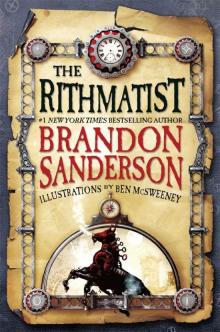 The Rithmatist
The Rithmatist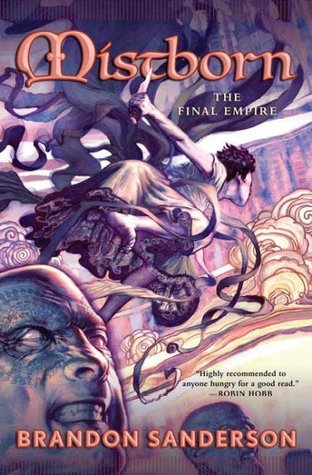 Mistborn: The Final Empire
Mistborn: The Final Empire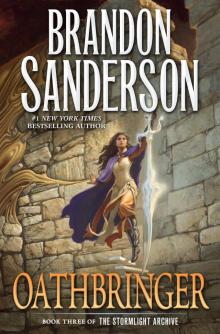 Oathbringer
Oathbringer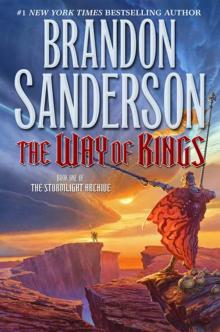 The Way of Kings
The Way of Kings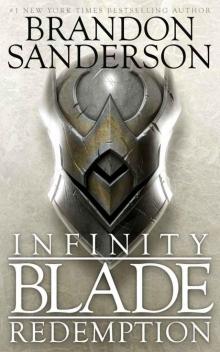 Redemption
Redemption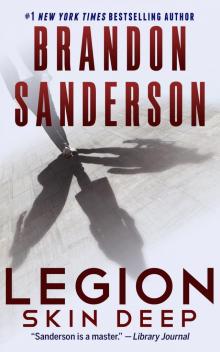 Skin Deep
Skin Deep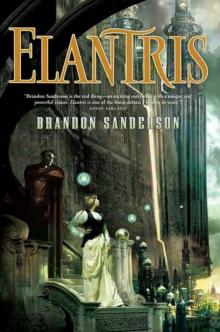 Elantris
Elantris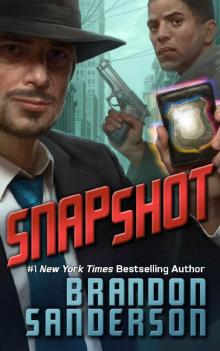 Snapshot
Snapshot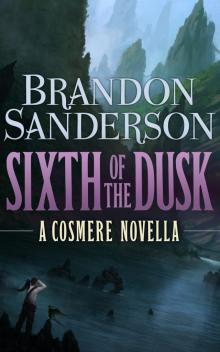 Sixth of the Dusk (Cosmere)
Sixth of the Dusk (Cosmere)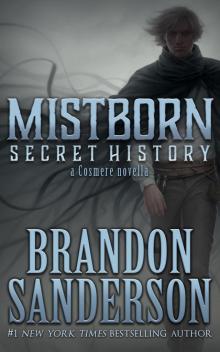 Mistborn: Secret History
Mistborn: Secret History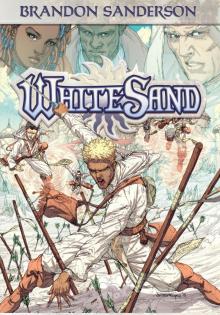 White Sand, Volume 1
White Sand, Volume 1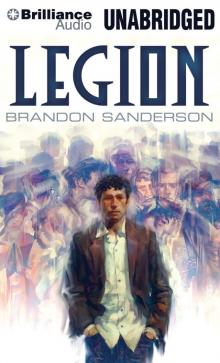 Legion
Legion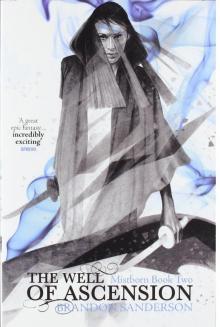 The Well of Ascension
The Well of Ascension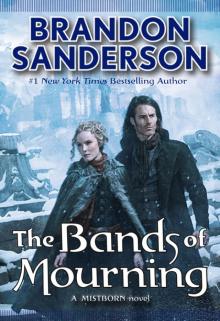 The Bands of Mourning
The Bands of Mourning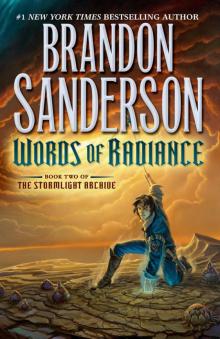 Words of Radiance
Words of Radiance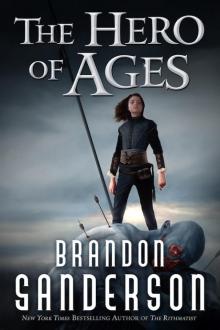 The Hero of Ages
The Hero of Ages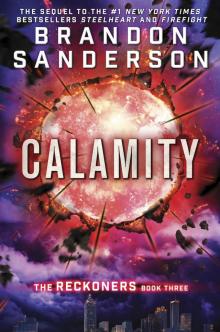 Calamity
Calamity Alcatraz Versus the Scrivener's Bones
Alcatraz Versus the Scrivener's Bones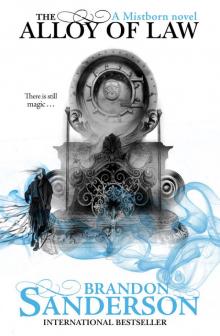 The Alloy of Law
The Alloy of Law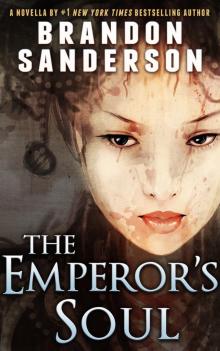 The Emperors Soul
The Emperors Soul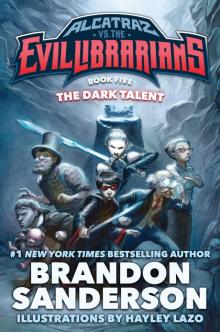 The Dark Talent
The Dark Talent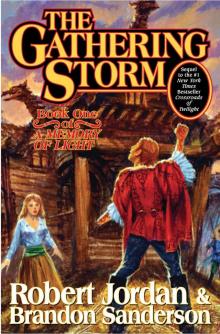 The Gathering Storm
The Gathering Storm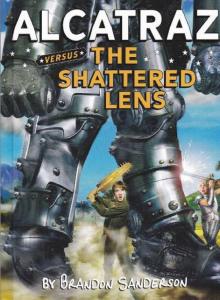 Alcatraz Versus the Shattered Lens
Alcatraz Versus the Shattered Lens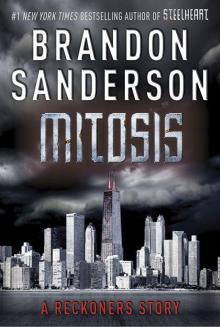 Mitosis
Mitosis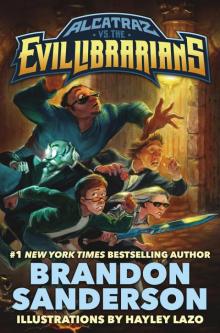 Alcatraz vs. The Evil Librarians
Alcatraz vs. The Evil Librarians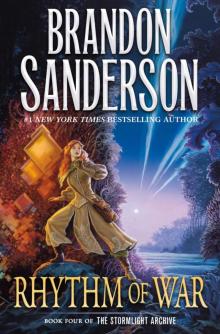 Rhythm of War (9781429952040)
Rhythm of War (9781429952040)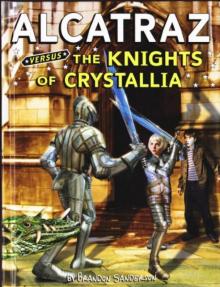 Alcatraz Versus the Knights of Crystallia
Alcatraz Versus the Knights of Crystallia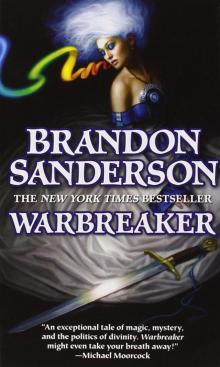 Warbreaker
Warbreaker Firstborn
Firstborn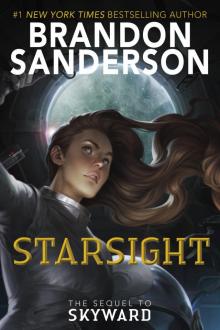 Starsight
Starsight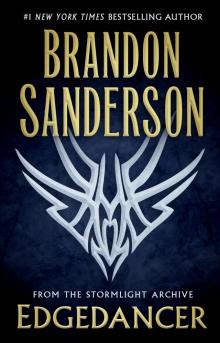 Edgedancer
Edgedancer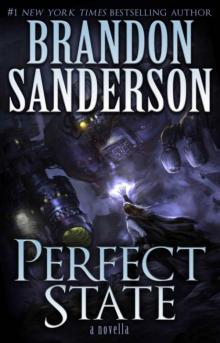 Perfect State
Perfect State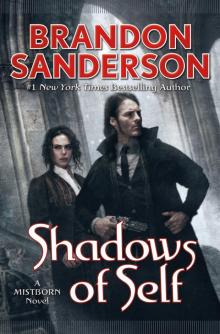 Shadows of Self
Shadows of Self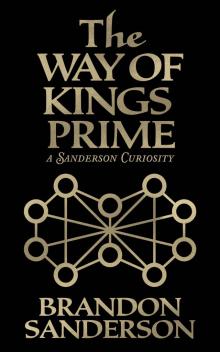 The Way of Kings Prime
The Way of Kings Prime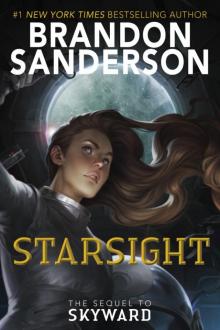 Starsight (US)
Starsight (US)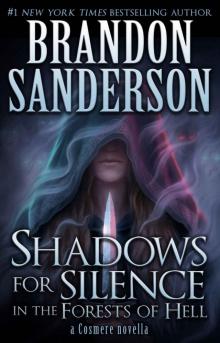 Shadows for Silence in the Forests of Hell
Shadows for Silence in the Forests of Hell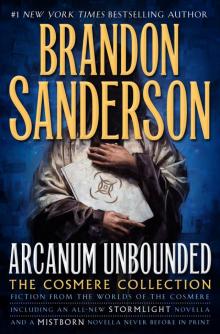 Arcanum Unbounded: The Cosmere Collection
Arcanum Unbounded: The Cosmere Collection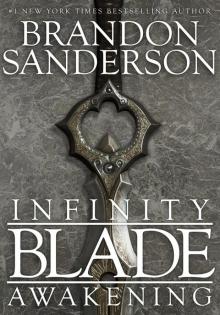 Awakening
Awakening Firefight
Firefight Dawnshard
Dawnshard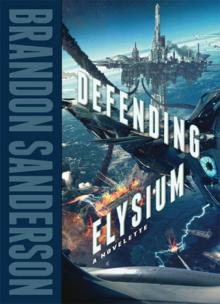 Defending Elysium
Defending Elysium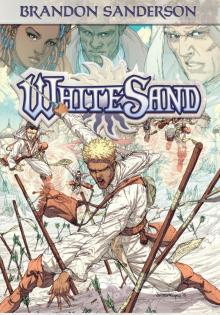 White Sand
White Sand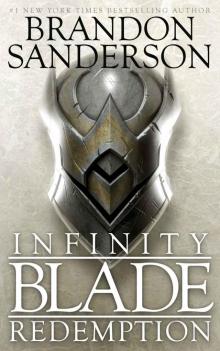 Infinity Blade: Redemption
Infinity Blade: Redemption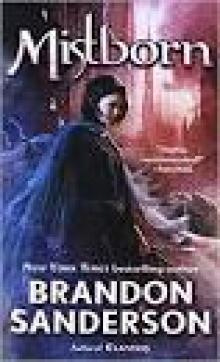 The Final Empire
The Final Empire Skyward
Skyward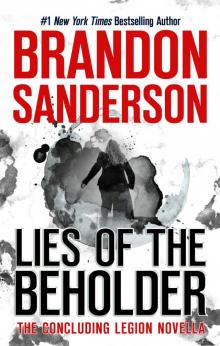 Lies of the Beholder
Lies of the Beholder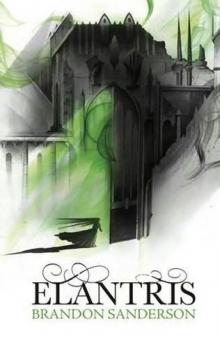 Elantris e-1
Elantris e-1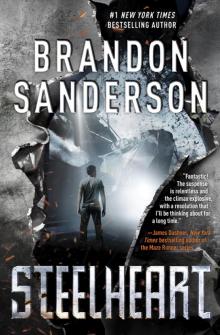 Steelheart r-1
Steelheart r-1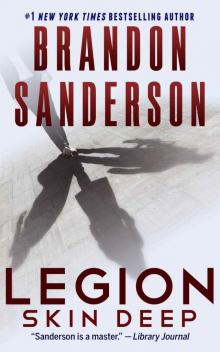 Legion: Skin Deep
Legion: Skin Deep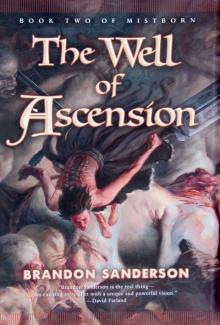 Well of Ascension
Well of Ascension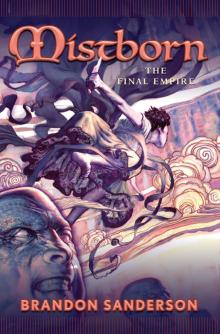 Mistborn
Mistborn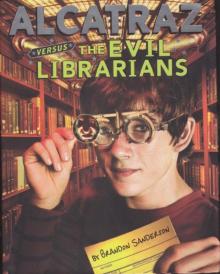 Alcatraz versus the Evil Librarians
Alcatraz versus the Evil Librarians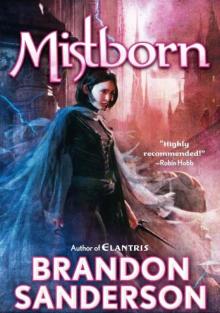 The Final Empire m-1
The Final Empire m-1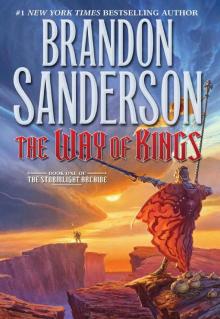 The Way of Kings (Stormlight Archive, The)
The Way of Kings (Stormlight Archive, The)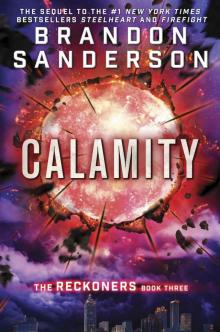 Calamity (The Reckoners)
Calamity (The Reckoners)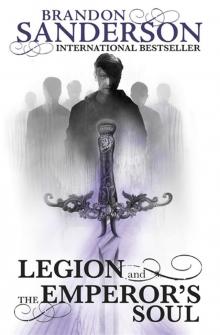 Legion and the Emperor's Soul
Legion and the Emperor's Soul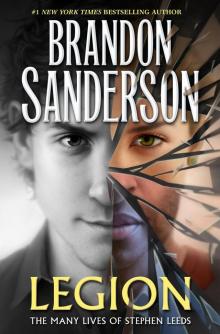 Legion: The Many Lives of Stephen Leeds
Legion: The Many Lives of Stephen Leeds The Mistborn Trilogy
The Mistborn Trilogy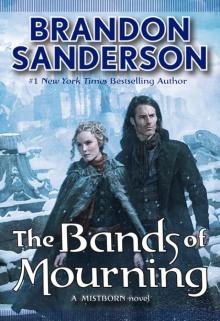 Bands of Mourning
Bands of Mourning Alcatraz
Alcatraz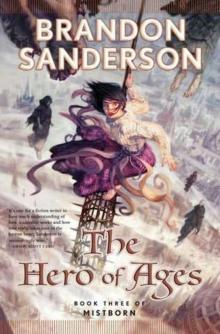 The Hero of Ages m-3
The Hero of Ages m-3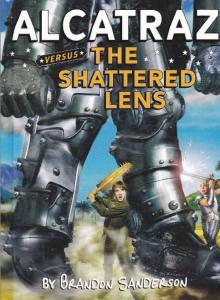 Alcatraz vs. the Shattered Lens
Alcatraz vs. the Shattered Lens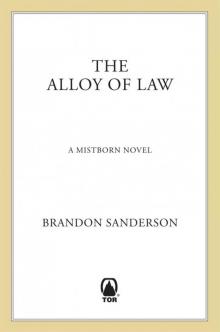 The Alloy of Law: A Mistborn Novel
The Alloy of Law: A Mistborn Novel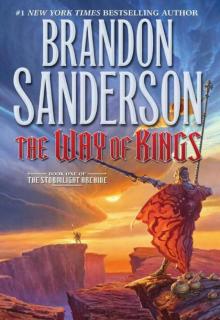 The Way of Kings sa-1
The Way of Kings sa-1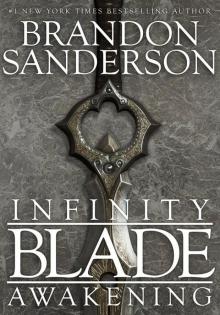 Infinity Blade: Awakening
Infinity Blade: Awakening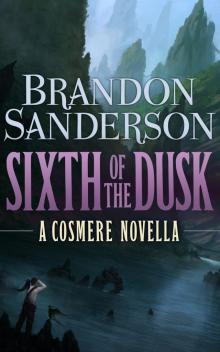 Sixth of the Dusk
Sixth of the Dusk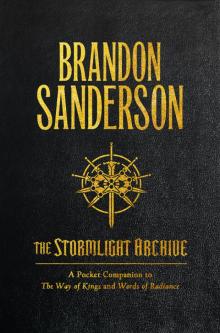 The Stormlight Archive
The Stormlight Archive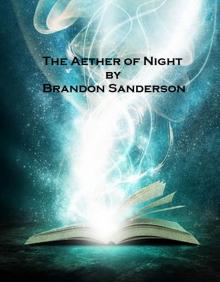 The Aether of Night
The Aether of Night